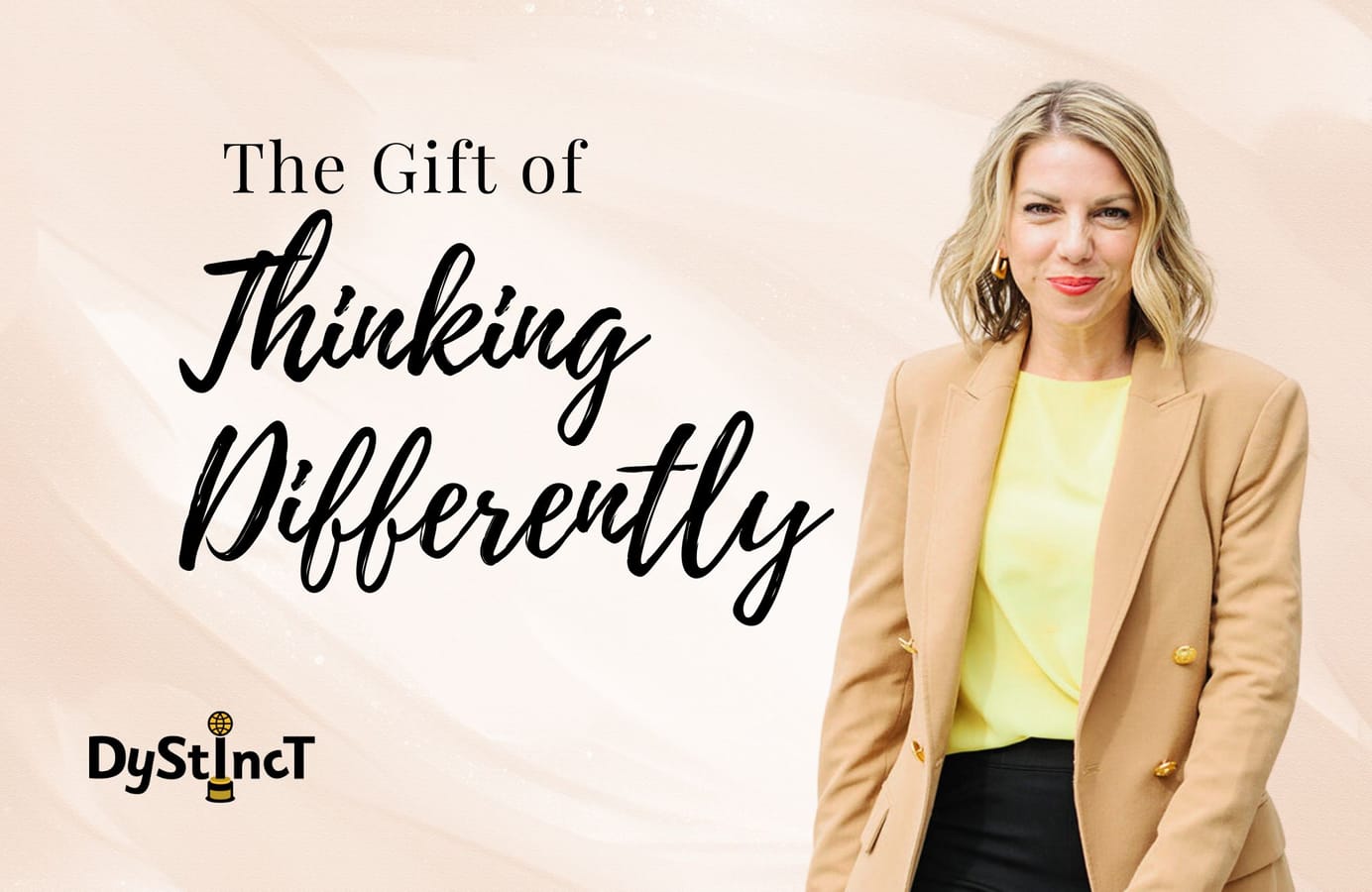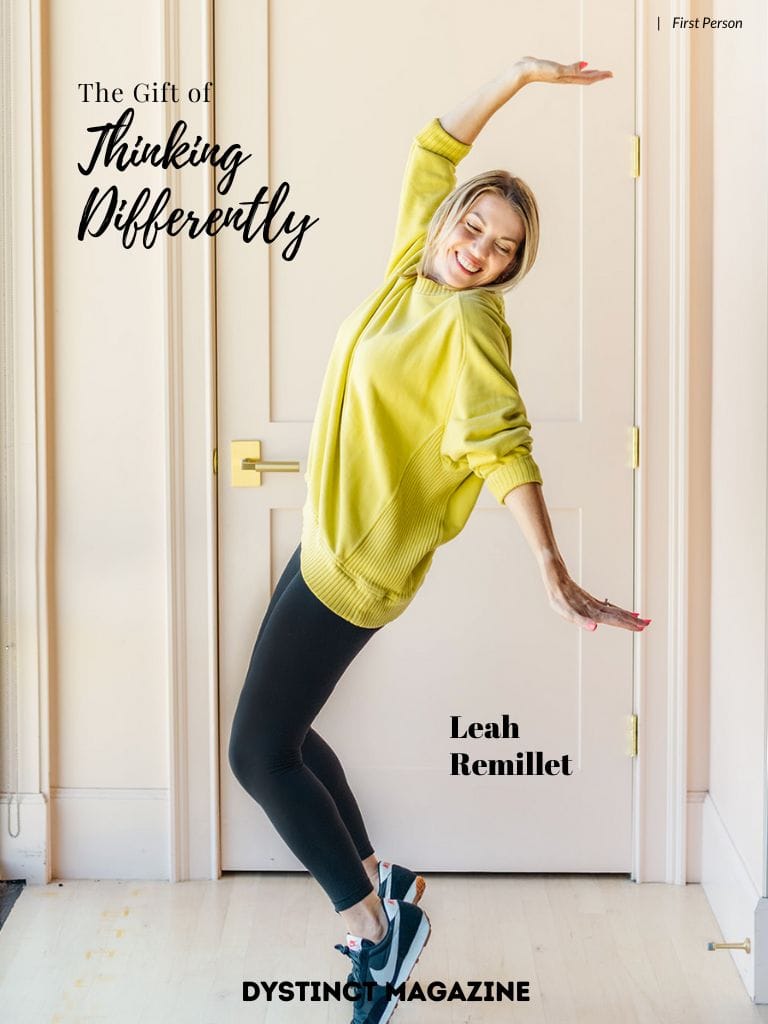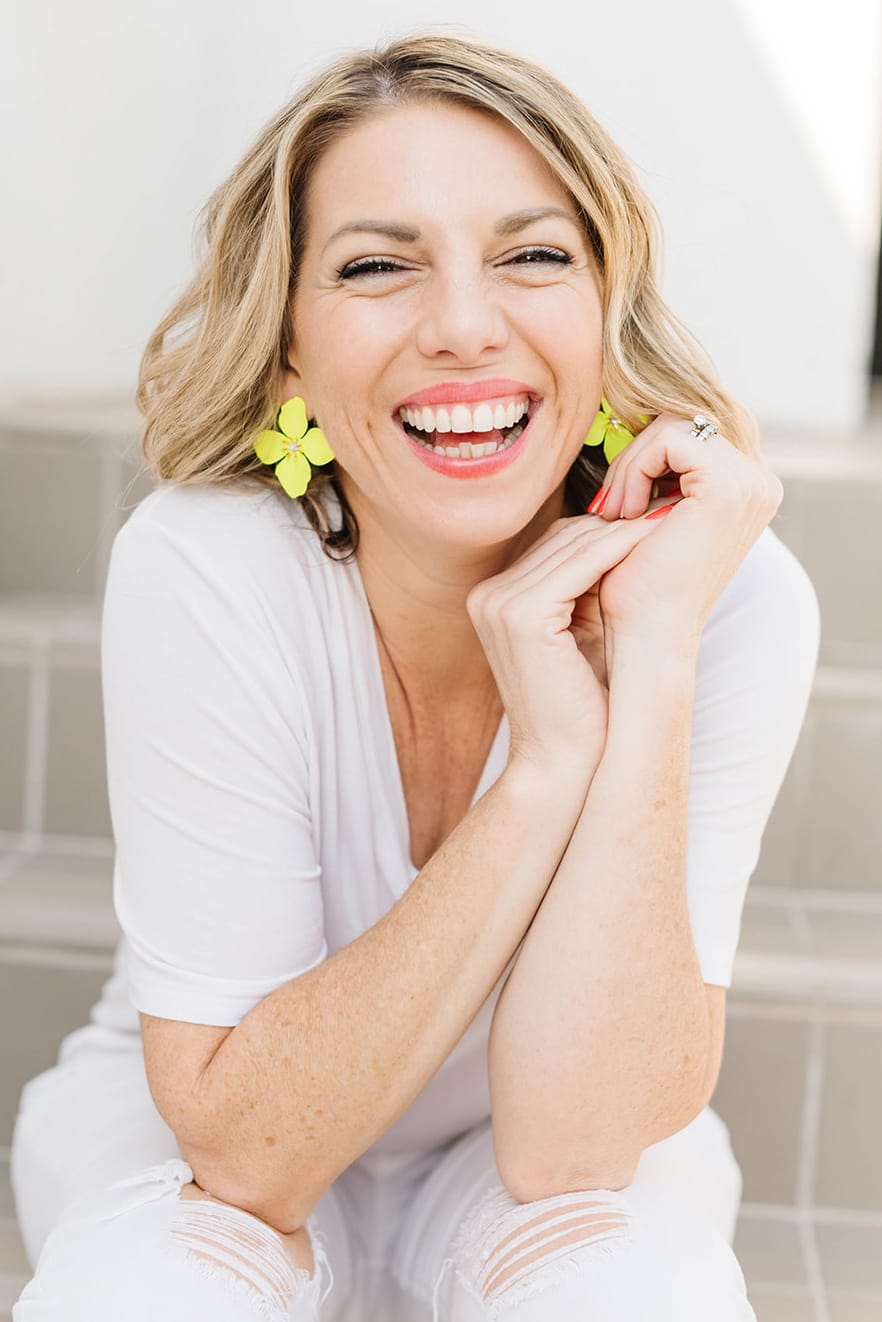
Issue 25: The Gift of Thinking Differently: My Dyslexia and ADHD Story | Leah Remillet
Leah Remillet, entrepreneur and host of the Balancing Busy Podcast, shares how she turned the challenges of ADHD and dyslexia into strengths, encouraging parents to embrace challenges as opportunities for their children to build confidence and resilience.
I want to tell you a story—not the "once upon a time" kind, but the real, messy, sometimes embarrassing kind.
There is always a "before", and the before is usually pretty messy! In fact, the harder the before, usually means the better the ending!

From the outside, my story might look like a picture-perfect journey—a thriving entrepreneur, host of the Balancing Busy Podcast, and a mom who's passionate about creating harmony in life and business. I get to speak on stages and travel all over the world. People actually pay me to tell them what to do in their business because I have this secret superpower to solve problems outside the box. It's the coolest!

But you must promise to always remember what I'm about to tell you. Are you ready? When you're looking at "the after" of someone's story, don't be blinded. There is always a "before", and the before is usually pretty messy! Mine is no exception! In fact, the harder the before, usually means the better the ending! Don't believe me? Just look at Harry Potter, Percy Jackson, and even your favorite Disney character. The beginning was hard, but they didn't decide that was proof to give up. Nope! They used their hard to overcome! But I'm getting ahead of myself.
My beginning starts with me thinking I was stupid, that I wasn't good enough. I didn't believe I would ever be able to read, and I certainly wouldn't choose to read "for fun." It turns out I love reading; I just had to find what I was interested in. Now, I read about a book a week. And everything was like that… Reading, math, college- I used to think those just weren't possible for me. I believed all this because when you're the last holdout to get the class ice-cream party because you still can't get all your multiplication facts memorized, or you get the Algebra test back that you studied so hard for and you still failed, it seems to all be saying, pretty conclusively that you're dumb.
But it turns out I'm not! And neither are you! What made me different was actually my superpower once I learned how to use it!
Yep, you heard that right. ADHD and dyslexia, two things I once thought were my biggest weaknesses, have turned out to be the very things that helped me become who I am today: what I teach (and get paid hundreds of dollars an hour to teach) is my ability to think differently. And why did I learn to think differently? Because I had to! The way everyone else was doing it never made sense to me!
ADHD and dyslexia, two things I once thought were my biggest weaknesses, have turned out to be the very things that helped me become who I am today.
Failing (a Lot) and Learning to Love It
Failing (a Lot) and Learning to Love It
So yes, school was hard. Like, really hard. I worked out of a math book two grades below my classmates, and I used to try to hide the cover because it was mortifying. Every time the teacher said, "Grab your books," I'd pray no one noticed.
And reading? Forget about it. I was pulled out of class multiple times a week to practice letters and dictations. While my friends were learning history or playing games, I was stuck in the hallway with flashcards or reading drills. I remember thinking, “Why can't I just be normal like everyone else?”
But here's the thing: All of that struggle taught me something way more valuable than how to do math or write neatly. It taught me creative problem-solving and resilience. I learned how to keep going even when things felt impossible. I figured out how to adapt, ask for help, and find creative ways to solve problems.
It turns out failure wasn't my enemy—it was my greatest teacher.
Why Thinking Differently Is Amazing
Why Thinking Differently Is Amazing
Here's something I didn't realize until I was much older: the way my brain works is pretty awesome. Dyslexia and ADHD don't make me "less than." They make me different. And different is powerful.
Did you know some of the greatest minds in history had learning differences? Albert Einstein couldn't read fluently until he was 9, and his teachers thought he was lazy. Steve Jobs, who gave us the iPhone, struggled in school because he hated following rules. Even Walt Disney, the man who created the happiest place on earth, was told he lacked imagination because he couldn't follow traditional learning methods.
These are the kinds of people who changed the world. They saw what others couldn't, thought outside the box, and refused to give up—even when they were told they weren't good enough.
That's what thinking differently allows you to do. You don't just accept the world as it is—you imagine how it could be.
Seeing My Superpower
Seeing My Superpower
For me, dyslexia gave me the ability to think visually and see connections others might miss. I process ideas in pictures and patterns, which helps me come up with creative solutions. That's been a superpower in running my business and designing systems to help other entrepreneurs simplify their lives.
And ADHD? Sure, it's hard to stay focused sometimes (like that time I went into the pantry to grab something and ended up reorganizing the whole kitchen). But it also gives me energy and the ability to juggle a million things at once. I've just learned how to protect myself from…myself. I work off checklists, set lots of timers, and let myself get up and move around when I need to for a minute.
To the moms and kids out there
To the moms and kids out there
If you're a kid reading this, let me tell you something I wish someone had told me: You are not broken. You don't need to be fixed. The way you think and learn isn't wrong—it's just different. And different is exactly what the world needs. In fact, the number 1 ability CEOs say they need for leadership-level employees (the ones who get paid the most) is creative problem-solving! We Neurodivergents have that in spades!
To the moms out there, I know how hard it is to watch your kid struggle. You want to fix it, to make the path smoother for them. But trust me—those struggles are shaping them into someone incredible. I hated it in the moment (of course I did, what kid wouldn't), but I'm so grateful for the struggle now.
We all want to raise strong, resilient, and confident kids. That's the goal, right? But resilience doesn't come from participation trophies or always getting things right on the first try. It comes from messing up, trying again, and learning through the process.
Recently, on the Balancing Busy Podcast, I had the privilege of speaking with Dr. Camilo Ortiz, a clinical psychologist and expert in child development, about the importance of letting kids face challenges (PT.1 Ep: 121). Dr. Ortiz shared a powerful perspective that applies not just to anxiety but to neurodivergence as well. He explained, "When kids are given the chance to tackle hard things on their own, it builds resilience and independence—two skills they'll need to thrive in life."
As parents of neurodivergent kids, it can feel natural to want to shield them from the difficulties that might trigger frustration or feelings of "I can't." Whether your child has ADHD, dyslexia, or another learning difference, the instinct to jump in and smooth the path can feel overwhelming. You want to make things easier because you care so deeply. But here's the truth: the hard stuff is where the magic happens.
The hard stuff is where the magic happens.
This post is for paying subscribers only
SubscribeAlready have an account? Log in


